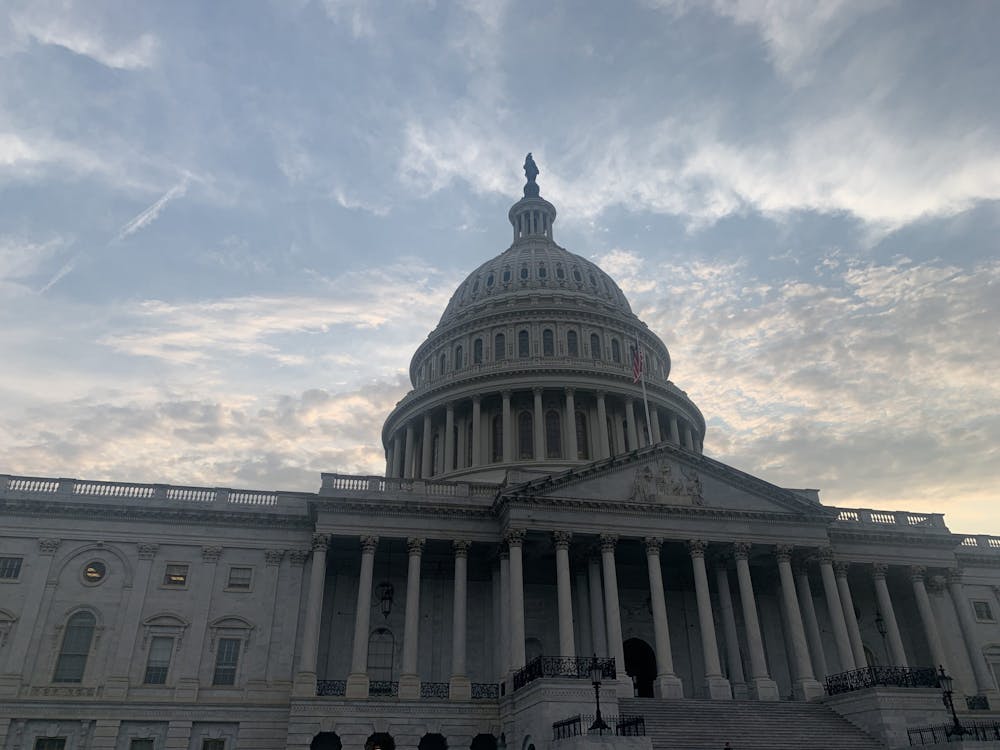Of the 434 congresspeople voting in the historic election for Speaker of the House, in which Rep. Kevin McCarthy (R-Calif.) was elected Speaker after 15 rounds of voting, seven are Princeton undergraduate alumni.
The only other time in the post-Civil War era when a vote required multiple rounds was in 1923, when it took nine tries.
Princeton has traditionally been one of the schools with the largest number of undergrad alumni in Congress. In the previous Congress, Princeton had the sixth most number of undergrad alumni in Congress, behind Harvard University, the University of California system, University of Wisconsin-Madison, the California State University system, and Stanford University.
This Congress, there are Princeton alumni on both sides of the aisle: five Democrats and two Republicans. The party ratio of Harvard undergrad alumni is more skewed, with nine Democrats and two Republicans in the 118th Congress. Of the Princeton alumni in Congress, some Democrats suggested the vote was a sign of Republican weakness, while one Republican suggested it spoke to the strengths of American democracy.
In an interview with The Daily Princetonian, Rep. Glenn Ivey ’83 (D-Md.) shared his thoughts about the vote. “It was a surreal experience,” he said.
“I never imagined that Mr. McCarthy would come to the floor 20 votes short of what he needed to be elected Speaker. We haven’t seen anything like this in nearly 150 years. Apparently, this was a sign of things to come under House Republican leadership.”
Indeed, to some, the divisiveness of the unprecedented vote represents something much bigger than nominating a speaker.
Rep. Raja Krishnamoorthi ’95 (D-Ill.) told the ‘Prince’ that, “the level of dysfunction that exists in the Republican Caucus ... serves as a concerning potential preview for what the next two years of Congress will look like with Republicans in the majority in the House of Representatives.”
Republican alumni in Congress had a different view of what the vote showed. Rep. Mike Gallagher ’06 (R-Wis.) saw this voting process as “quintessentially American.”
In a press statement to the public he explained why: “For the first time in years, members weren’t going to fundraisers or lunches with lobbyists — they were on the House floor, engaging with each other and debating the foundation for the next two years of this Congress. The institution would be better served if more legislation involved the same energy we’ve seen over the past few days.”
In a speech on the house floor, Gallagher explained that “democracy is messy” and “that’s a feature, not a bug, of our system.” He then shifted into an argument in favor of McCarthy, attempting to end the ongoing standstill, but concluded, “what I see right now is energy, a tremendous amount of energy in this Republican caucus, to do the work of the people.”
Many of the Republicans that voted against McCarthy were members of the conservative House Freedom Caucus. Rep. Ken Buck ’81 (R-Colo.) is a member of the Freedom Caucus. Buck voted for McCarthy through the first nine rounds, yet told CNN after the sixth vote, “I’ve had a number of conversations with Kevin, and I basically told him at some point this needs to break loose … he either needs to make a deal to bring the 19 or 20 over, or he needs to step aside to give somebody the chance to do that.”

Buck did not record a vote in rounds nine through 11. It wasn’t until McCarthy agreed to multiple concessions to members of the Freedom Caucus that 14 of the 20 defectors reversed their votes and provided McCarthy the necessary threshold to win. Buck’s office did not respond to a request for comment in time for publication.
Ivey warned that the vote might be a harbinger of votes to come: “It looks like the House might not be able to carry out the chamber’s most basic functions.”
To Ivey, the divisiveness on display during the vote poses the biggest threat to addressing the debt ceiling crisis, as detractors might “shut down the government if they don’t get their way.”
Currently, the nation’s outstanding debt is at its statutory limit of $31.4 trillion. If the United States defaults on its debt, this would have enormous consequences on the U.S. economy, global financial stability, and many Americans.
McCarthy has rejected Democratic calls for a clean debt ceiling increase without any conditions attached — among them deep cuts in federal spending. Additionally, McCarthy must walk a fine line in negotiations, since any member can call for a motion to vacate the speaker’s chair, one of several concessions he made to gain the top post after the 15 rounds of voting earlier this month.
Of the seven Princeton alumni that currently serve in the House of Representatives, the offices of Buck, Rep. Derek Kilmer ’96 (D-Wash.), Rep. Terri Sewell ’86 (D-Ala.), and Rep. John Sarbanes ’84 (D-Md.) have not responded to requests for comment from the ‘Prince.’
Abby Leibowitz is a News contributor for the ‘Prince.’
Please direct any corrections requests to corrections[at]dailyprincetonian.com.








